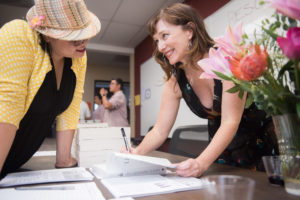
Signing a book for Tuyen Tran
Last Thursday, I officially welcomed The Listening Leader into the world with a book launch hosted at my former employer, the National Equity Project. I was surrounded by 70 people from every leg of my journey: students I taught in the late 90’s, early teaching partners, teachers and leaders I have coached over the past 10 years, colleagues, friends, and family. It was amazing.
One colleague who works in a challenging district context wrote this to me: “It was an oasis of love and light in a desert of toxicity and trauma. I am not exaggerating. I felt such joy and peace being with you and your adoring colleagues and friends.”
This experience made me think about the power of community. Meg Wheatley writes, “There is no power for change greater than a community discovering what it cares about.” The Listening Leader starts from a similar premise: when school communities discover a shared sense of purpose, they can create deep, meaningful, equitable change. This process begins with listening which is, as theologian Paul Tillich says, the first duty of love.
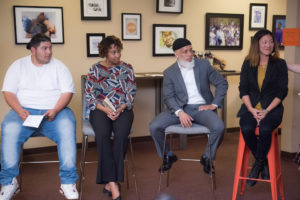
Panelists Guillermo Ayala, student at Oakland International High School; Nikki Thornton-Street, Teacher of the Year in San Francisco Unified School District; Matin Abdel-Qawi, principal of Oakland High School; and Jessica Huang, principal of June Jordan School for Equity
At the event, I tried to model the principles of Listening Leadership by facilitating a panel of 4 powerful leaders: a student who is an unaccompanied minor from El Salvador and educates adults about his experience; two principals; and a teacher leader (see photo to the left). Their stories and their perspectives on listening captured the room.
The last 15 years of test-and-punish educational policy has sucked the joy out of so many schools and classrooms. It is my hope that by empowering courageous, socially conscious leaders at every level of the system, my book will help to turn the tide. The Listening Leader is about bringing humanity back into our education system. It’s about interrupting unconscious biases and disrupting the racialized outcomes that plague our schools. It’s about the power of stories to transform our institutions. And it’s about the need to build power, agency, and community among educators, parents, and students.
To close the event, I read an excerpt from the conclusion, which I’ll share with you now:
“June Jordan was a writer and professor at UC Berkeley who created a program called Poetry for the People (P4P), which was really a movement to liberate the voices of young people and cultivate a generation of warrior‐poets. As a young teacher, I won a fellowship that allowed me to take Jordan’s final P4P class before she lost a battle with
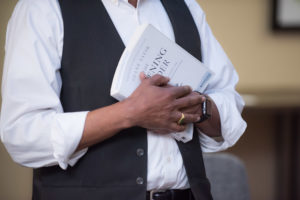
Victor Cary, Senior Director of the National Equity Project, holds a copy of The Listening Leader
cancer. When we opened June Jordan School for Equity in 2003, the school had no name, but through a democratic process of debate and voting, the first graduating class chose to honor this visionary leader.
We need a generation of Listening Leaders at every level of the school system. Together we can transform our schools into spaces of humanity and critical consciousness. We need not look beyond ourselves. In the prescient words of June Jordan, ‘We are the ones we’ve been waiting for.’”

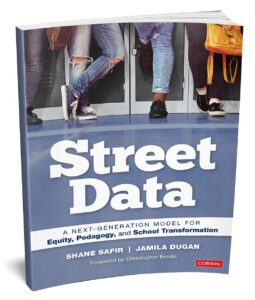 Enter your email here and get a free copy of the first chapter of Street Data!
Enter your email here and get a free copy of the first chapter of Street Data!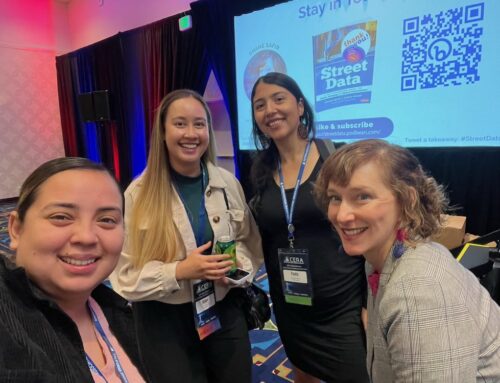
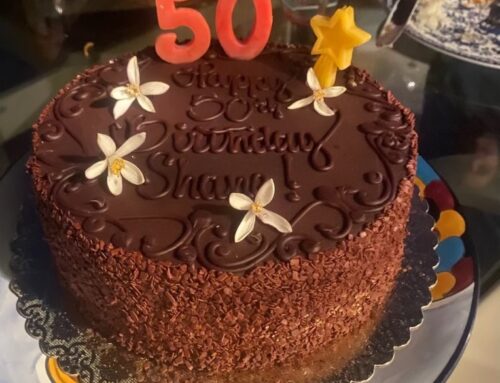

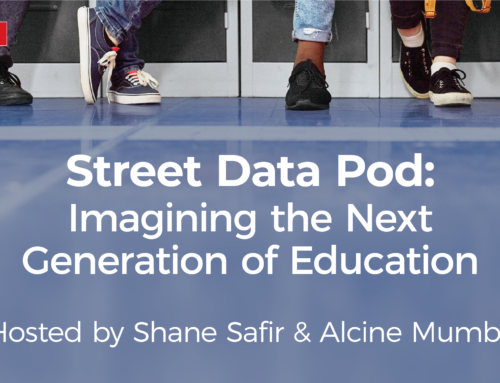

Shane, you are a force…and your book is an inspiration! Meeting you as a student teacher and having you as my mentor at June Jordan School for Equity over a decade ago was one of the pivotal moments of my life as an educator. Many of the lessons I learned there under your guidance have informed my obsession with meeting people where they are and supporting them in transforming themselves, their organizations and their communities on their journey to creating more socially just and equitable outcomes. Thank the Cosmos for you, your passion and your wisdom!